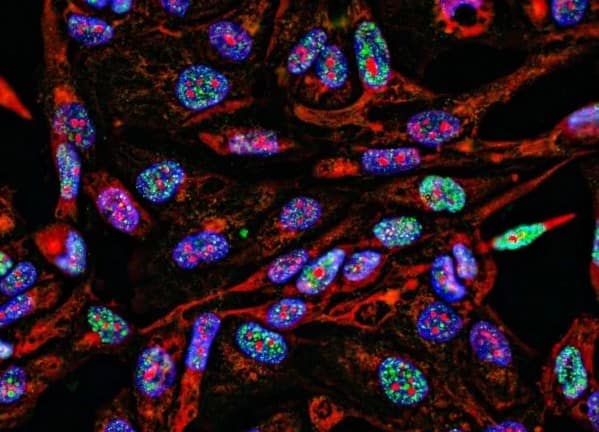Ultrashort pulses used in life sciences provide benefits for a wide variety of research areas such as microscopy, oncology or genetics.
The advantages of highly stable and synchronized pulse trains are already used on microscopy techniques such as Fluorescence Lifetime Imaging (FLIM). Optical pulses are used to manipulate and interact with living materials, such as cells or tissues, to analyze their response and increase our understanding of complex biological processes.
Thanks to their highly intense ultrashort optical pulses, ALCOR and DIADEM lasers are used for cell ablation to realize highly localized dissection. Such optical pulses can also be employed to cauterize tissues, enabling new level of analysis in cell research.
 |  |

